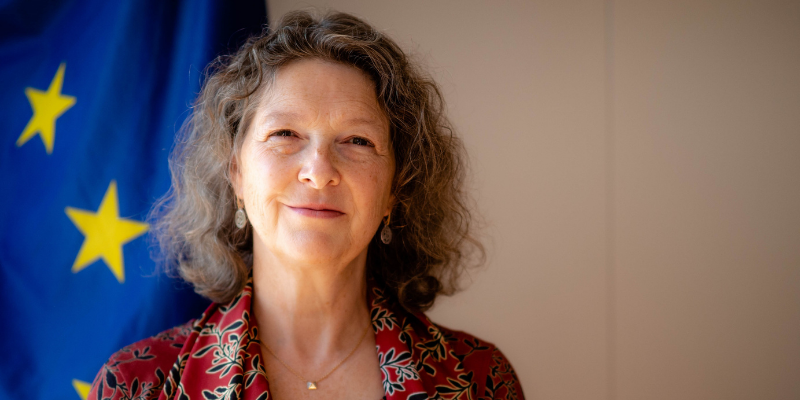By June Lowery-Kingston, Head of Unit Accessibility, Multilingualism & Safer Internet, and Deputy to the Director, Data, DG CONNECT, European Commission
‘The pandemic has exposed how crucial digital technologies and skills are to work, study and engage – and where we need to get better. We must now make this Europe’s Digital Decade so that all citizens and businesses can access the very best the digital world can offer.’
So declared Commission President Ursula von der Leyen earlier this spring, at the launch of the 2030 Digital Compass Communication.
As a compass can help a traveller reach the desired destination, the Digital Compass aims to guide Europe’s digital transformation. It sets ambitious targets for 2030 around four cardinal points of digital skills, infrastructures, business, and public services, but this transformation will be built on the EU’s rights and values, with people at its heart. To complement the direction of travel, the Commission wants to develop a sort of “moral compass”, a set of digital principles, such as access to high quality connectivity, to digital skills, and to fair, non-discriminatory and safe online services. The principles also cover children’s protection and empowerment online.
This is one step on the road to a Union of Equality for all, where no-one is left behind digitally or otherwise. No matter what their origin, language, ability, or whether they are an adult or a child.
Another step on this path is the EU’s first comprehensive strategy on the Rights of the Child (‘RoC strategy’), also adopted this spring. The RoC strategy calls for an EU where children can safely navigate the digital environment while harnessing its opportunities. Childhood has moved increasingly online, and respect for digital rights – online empowerment, protection and awareness – is essential for children to grow into confident and active digital citizens.
Consequently, the RoC strategy called for an update of the European Strategy for a Better Internet for Children (‘BIK strategy’).
When adopted, back in 2012, the BIK strategy set a global benchmark. It has guided and shaped national policies for a decade in the EU, and influenced international policy. Under the strategy, the EU has
- funded the network of Safer Internet Centres across Europe with their awareness raising activities, helplines and hotlines and
- supported the resource hub betterinternetforkids.eu portal,
- helped exchanges between Member States and
- facilitated self-regulatory initiatives, such as the Alliance to better protect minors online.
An important part of the work has been engaging and involving young people – the ‘BIK Youth Ambassadors’ and millions of others. While the helplines offer advice and support for children and their families, projects like the BIK Youth Pledge give youngsters the chance to have their views heard.
The EU legal landscape, the international context and above all children’s use of technology has changed dramatically since 2012. And a new Better internet for children strategy is now due in 2022.
In this spirit, we have been consulting targeted groups of children and young people, including those with disabilities and other vulnerabilities, parents, teachers, industry partners, researchers and international organisations around Europe for their views. What do we want the digital future to look like for children in Europe? For anyone who cares for, educates, or can otherwise influence positive online opportunities and experiences for Europe’s children and young people, an online questionnaire is open now until 11 October. Please have your say!
How to make Europe’s Digital Decade fit for children and young people, and how to translate those ambitions into actions in the new BIK strategy, will also be the focus of the Safer Internet Forum, to be held on 6 and 7 October.
Last but definitely not least, projects such as DigiGen are of enormous value to us policy makers. DigiGen provides what we most need for evidence-based policy-making: up-to-date, relevant research data on how technology is impacting the lives of young Europeans. While the European Digital Compass will guide our direction into the next decade and beyond, projects like DigiGen help us build a safer and better road for our digital travels.

